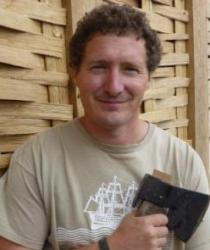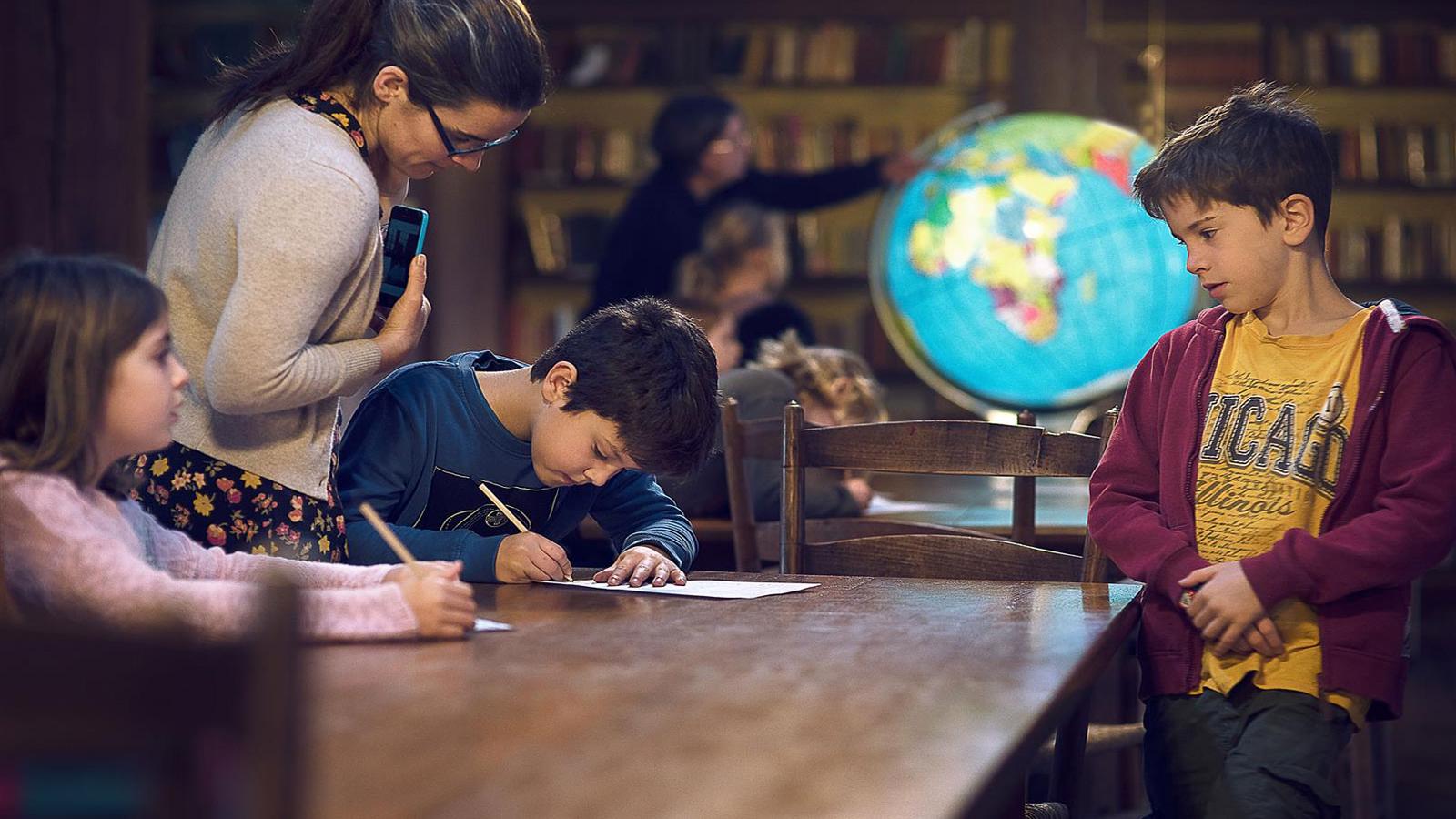
Showing her friends around the Bakehouse (Bonham’s Barn), at the heart of the Outdoor Work area of Bedales, a 38-year old OB points at a wall with satisfaction: “I laid that brick. That’s my bit of the Bakehouse”
Such tangible memorials to individual effort and shared endeavour are rare. For all its sophistication, for all the academic and artistic opportunities on offer, Bedales remains a rural school, set in the middle of a working farm. For decades, the farm itself was run by a tenant farmer – Farmer Cobb – after whom Cobb’s field is named, until it reverted to the school in the 1980s. The school has a flock of Jacob sheep, as well as chickens, a two heavy horses named Spartan and Hector, and bees, and is shortly to take on rare breed pigs, all of which need looking after.
The school changes with the times, yet much remains the same. Outdoor Work is a case in point. OB John Russell, who worked on the Sotherington Barn, remembers Outdoor Work under John Rogers in the 1980s as cosy yet inspirational: “John took a lot of people under his wing – it was incredibly convivial and homely. He really got the ethos of (Bedales founder) Badley’s belief that you need to make things in order to understand and respect the work that goes into them and the people who make them. I believe that’s still true. Handing stuff to kids on a plate does nothing for them as personalities. Badley was about humbling people a bit, teaching them proper life skills.”
For all its sophistication, for all the academic and artistic opportunities on offer, Bedales remains a rural school, set in the middle of a working farm
John acquired such skills in abundance. Outdoor Work may have been a second home to him and to his twin brother Henry, but it was never a soft option. The rigour and intolerance of mediocrity that characterised the school’s approach to cabinet-making applied equally to skills such as pruning – taught over many months by visiting tutors from the Blackmoor apple estate. John learned how to drive a tractor and reverse a trailer. He even learned basket-weaving – the six or seven baskets he made are still going strong. He recalls the painstaking work of stripping down a Morris Minor engine and putting it back together just as clearly as he remembers shovelling chicken manure; all part of the experience of outdoor work in the 1980s.
Naturally shy, John was mortified to be described in a recent magazine as a ‘giant of the timber framing industry’, along with Gabriel Langlands (OB 1989). He and his brother have helped to build most of Bedales’ timber buildings over the last 25 years. They started out on the Sotherington Barn and the Bakehouse while at school. In 2002, they directed the construction of the Workshop by Bedales students and staff. Henry helped to build the Olivier Theatre – the entrance to which was built by Bedalians as a community project. Both brothers are involved in the design and construction of a new timber sports pavilion at Bedales, another community project.
Inevitably, Outdoor Work has changed over the years – no-one would allow a circular saw to be used unsupervised by students, as was the case years ago. Health and safety is ever – though discreetly – present. Much of the original spirit remains, however. Outdoor Work remains a haven for those who crave activity but not sport. It provides an opportunity to learn traditional woodland management techniques such as fencing, hedging and coppicing. It offers a homely, comfortable place to enjoy a different pace of life – witness the Bakehouse, filled to capacity every Friday, when Bedalians rise at 5.30am in order to knead, prove and breakfast on the bread baked in the hand-built, wood-fired bread oven. Outdoor Work is not everyone’s cup of tea; but whether students partake of it or not, its existence gives school life an extra dimension that is unique. Some appreciate it only after they have moved on, but many find their niche within it, and gain skills to last them a lifetime.
The coracle-making that goes on each summer term is, on one level, pureSwallows & Amazons. On another, it introduces students to working from first principles – in this case to construct a craft that will keep their feet dry in the annual race across the school’s lake. Country crafts and skills are taught to professional standards – smithing by a visiting blacksmith, timber-framing by the Russell brothers and others and restoration techniques by experts from theWeald & Downland Museum. Such skills are, for the most part, funded by the cottage industry side of Outdoor Work – the profits from livestock, bee-keeping, poultry, home made Christmas puddings, bread, wool, gates and garden furniture.
When John Russell speaks about his love of timber-framing, he also articulates what many Bedalians feel about Outdoor Work: “You can stand back and see what you’ve done and say ‘OK, that’s good enough.’ The feeling you get from physically making an object with your own two hands is incredibly satisfying.”
John Russell was interviewed by Kate Fairweather in Summer 2011.
